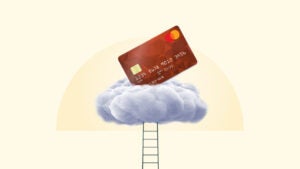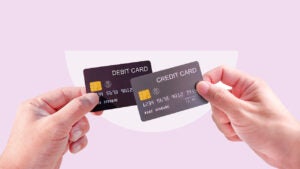Why do debit and credit cards have expiration dates?




Key takeaways
- Credit cards and debit cards have expiration dates, after which they can no longer be used for in-person or online purchases.
- Credit and debit card expiration dates help prevent unauthorized use and provide extra fraud protection during transactions.
- Most of the time, your card issuer or bank sends you a replacement card shortly before your current card expires.
- When cards expire, they’re typically replaced with new ones that may feature updated security technology, such as an EMV chip. It also provides an opportunity for account renewal, such as upgrading to a better-suited card.
Credit cards and debit cards make in-person and online purchases more convenient. However, there are a few details to keep in mind when using any type of card for spending.
For example, you need to keep track of your credit card’s expiration date or the expiration date listed on your debit card. This date indicates the validity period of each card and the date by which it can be used. After this date passes, you’ll need to get a replacement card for your account.
Why do cards have expiration dates?
Credit and debit cards have expiration dates for several reasons, including the fact that plastic and metal cards aren’t necessarily made to last forever. Expiration dates can also help keep your information and data secure, and they can ensure you are eligible for improved credit card security features that are added to new cards over time.
Here’s a rundown of the most important reasons credit card expiration dates matter and why you should welcome getting a new card every few years.
Bankrate’s take: Note the policy for existing credit card rewards you have before upgrading or closing an account. Depending on the card, you may need to spend or redeem your rewards balance before making any type of change. You may also be able to donate your rewards, depending on the terms and conditions of your card.
What to do when your debit card expires
If you’re wondering what to do when your debit card expires, you may not have to do anything. Most of the time, your card issuer will handle the process for you by automatically sending a new card to you by mail.
And if you ask, “If my debit card expires this month, can I still use it?” The answer is almost certainly “No.” If you use your old card after the expiration date, the transaction will likely be declined. That said, you usually have until the last calendar day of the expiration month before your service will be deactivated entirely.
If you don’t have your new card already, you’ll want to contact your issuer to see if a replacement has been sent. And if not, find out why and what will happen with your service moving forward. Whether you have a working card or not, you’re still responsible for the terms of your credit card account. This means you will still be responsible for making monthly payments on any balances you carry, even if your card service is interrupted.
What to do when your credit card expires
You should receive a notification by mail or email about a new card being on its way as the expiration date approaches. If you aren’t interested in continuing your credit card service, this would be a good opportunity to notify your card issuer that you don’t wish to renew.
If you choose to renew, the next step is to receive your new card. If you’re planning to move during that time, contact your issuer to update your mailing address. You should also notify your issuer if you’ll be away from home when your card is scheduled to arrive. Ask if you can receive your card before your departure or if they can hold off on sending it until you return.
Once your card arrives, you must activate it before you can use it. If you use your card for any automatic payments, like a utility bill or subscription service, you’ll need to contact those service providers to update your card information.
What to do if your card doesn’t arrive
You’ll receive a written notification when your new card is on the way. If it doesn’t arrive within two weeks of receiving that notification, contact your issuer. Your card may simply be lost in the mail or possibly stolen. As a security measure, your issuer will send you another replacement card.
If your old card is set to expire before the new one arrives, check with your issuer to see what they can offer to prevent your card service from being interrupted. In the event that you have to wait it out, be sure to make arrangements with any service providers that will be expecting an automatic payment from your credit card.
If you have bills set up for automatic payments on your old card and are worried you won’t get your new one on time, consider transferring the automatic payments to another credit card or debit card you have for the time being. You can also pay your bills with other payment methods while you wait for your new card to arrive, including cash or paper checks.
The bottom line
Credit card expiration dates may seem like a hassle, but they serve a purpose and can help you in ways you may not realize. Some benefits of credit and debit card expiration include fraud protection and card longevity. Expiration dates also allow you to decide if a card is still meeting your needs.
Remember that expiration dates apply to the physical card, not the account. So, when your credit or debit card is set to expire, it doesn’t mean your account is ending. If you currently carry a balance on a credit card, your credit card debt remains. Usually, you’ll get your new card in the mail, activate it and continue as usual.
Why we ask for feedback Your feedback helps us improve our content and services. It takes less than a minute to complete.
Your responses are anonymous and will only be used for improving our website.





